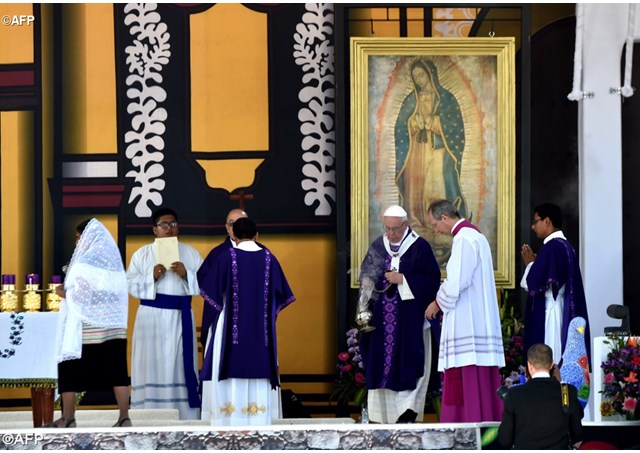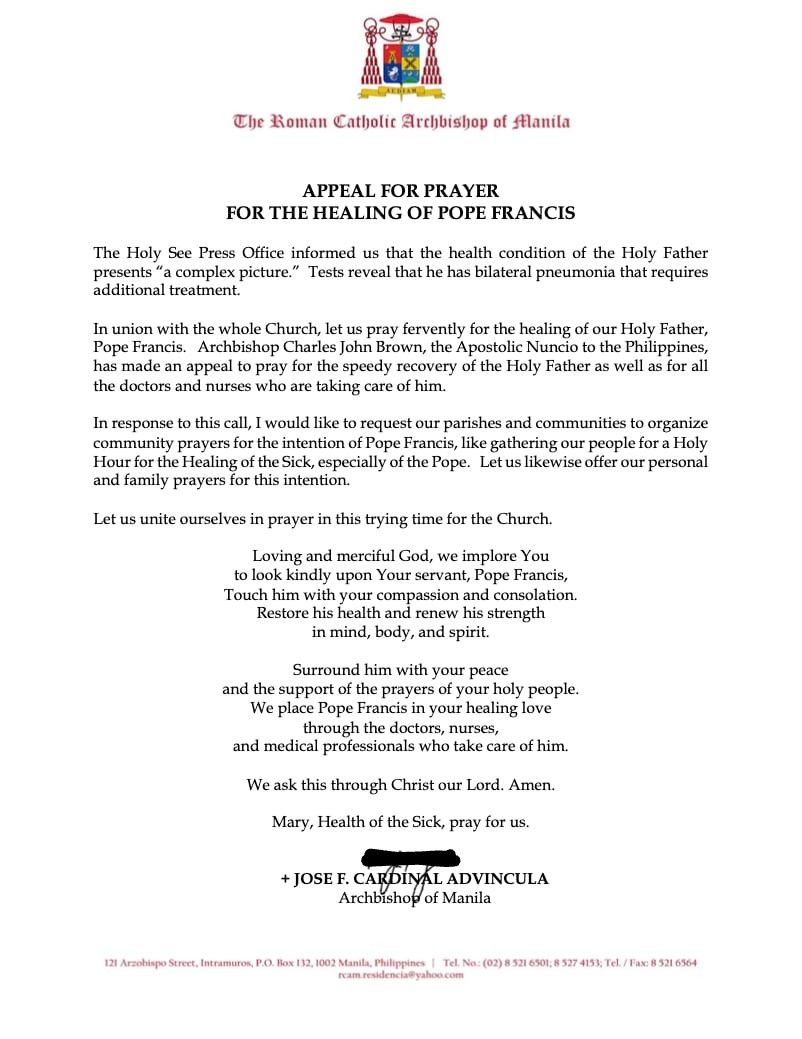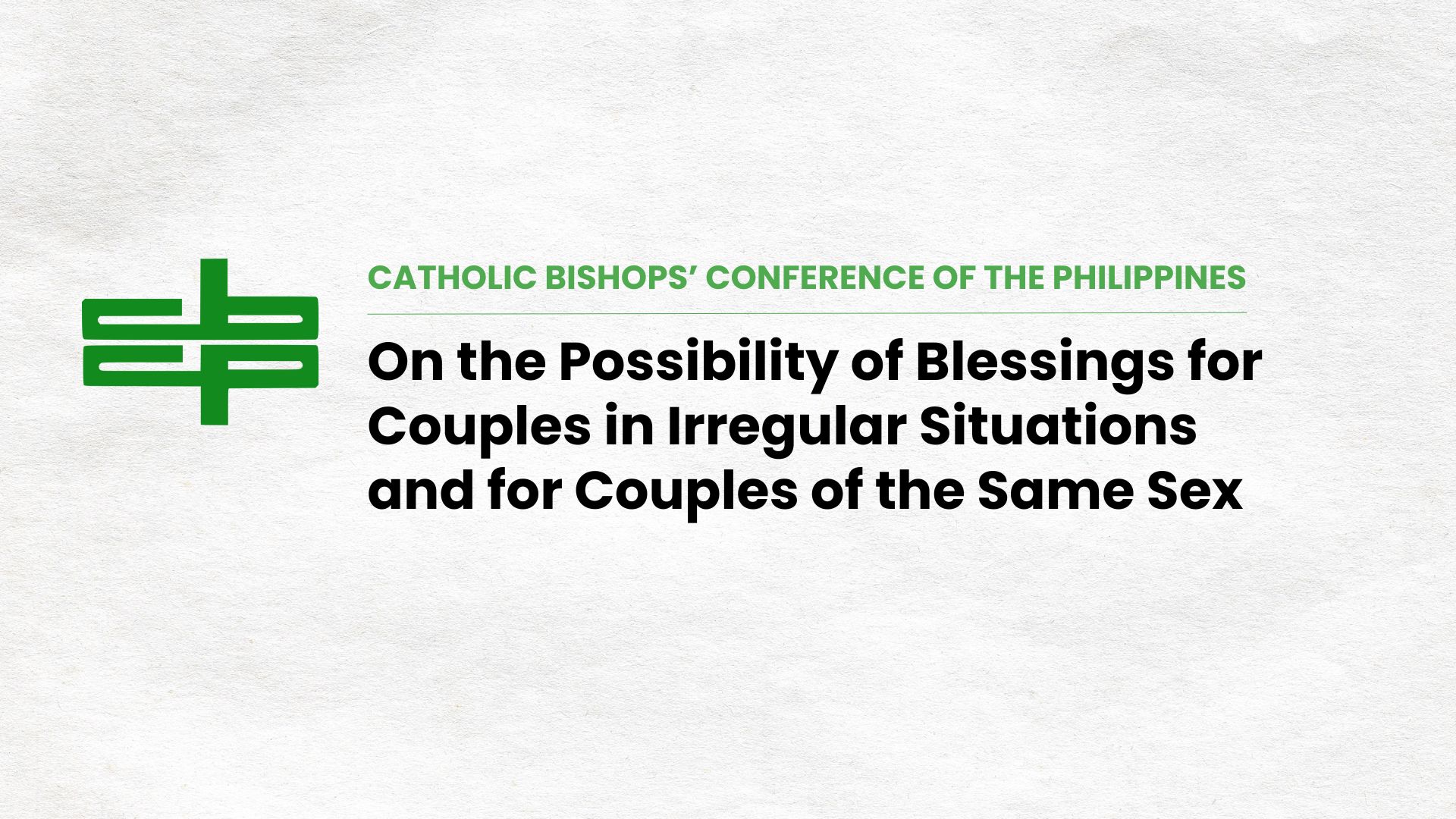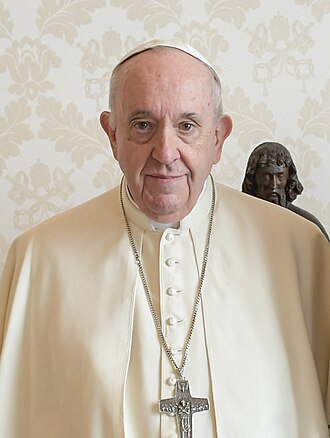
Pope Francis celebrates Mass with indigenous Mexicans in the southern state of Chiapas – AFP
(Vatican Radio) One of the highlights of Pope Francis’ six day visit to Mexico was the Mass that he celebrated at the sports centre of San Cristóbal de las Casas in the southern state of Chiapas on the morning of Monday February 15th .
As our correspondent in Mexico, Veronica Scarisbrick reports, it was a colourful celebration for the thousands of indigenous people who turned out to welcome the man they call “amigo Francisco, Papa de la libertad” or “our friend Francis, Pope of freedom”.
He had chosen to be with the indigenous people of Chiapas. And they turned up in their gaudy traditional costumes providing a splash of colour in this beautiful mountainous region where nature reigns. And the sound of rather elaborate wooden xylophones filled the air.
It was a highly symbolic celebration, firstly because in this remote area, home to the Mayan people, the altar stood against backdrop of a giant cut out the colorful ocre, rust and white façade of the city’s Cathedral, placed there to indicate the connection with the centuries old evangelization initially by the Spanish Dominicans.
Secondly because the altar in this region of Mayan temples in misty jungles, waterfalls and a wealth of wildlife rested on a Mayan Pyramid symbolic of steps reaching up to heaven. Meaning how Christian faith does not clash with the cultural roots of a people. And the altar itself evoked the waterfalls of ‘Agua Azul’, so an expression of the harmonious contact with nature, of the abundance of the rainforest.
And the Mayan people reached here in great numbers, 150.000 of them, from right across Chiapas. For the record there are 12 federally recognized ethnicities. The largest group being the ‘Chamulans’, a subset of the ‘Tzotzil Mayas’ who make up a third of Chiapas’ nearly one million indigenous people
And the Pope’s presence here took on meaning. He had chosen to be with a people who have long been used and misused by the local ‘ladinos’, those of Spanish origin and the ‘mestizos’, those of mixed race. To put you in the picture not so long ago the indigenous people were only allowed into town for the market but had to return to their homes in the pine forests at night. That’s when they weren’t misused as easy labour.
And in his homily Pope Francis had words of comfort relating to this exclusion of the indigenous people from society. Highlighting how on many an occasion some have considered the values and culture of this people’s traditions to be inferior. How others intoxicated by power, money and market trends had stolen their lands or contaminated them. How sad, the Pope said to this people from whom he insisted we have a lot to learn. Your peoples know how to interact harmoniously with nature which they respect as a source of food, a common home and an altar of human sharing.
And finally, symbolic of the acceptance of these people, Pope Francis made sure these long ostracized Mayans got a chance during this Holy Mass to speak in their own languages: tseltal, ch’ol and tsotil.











